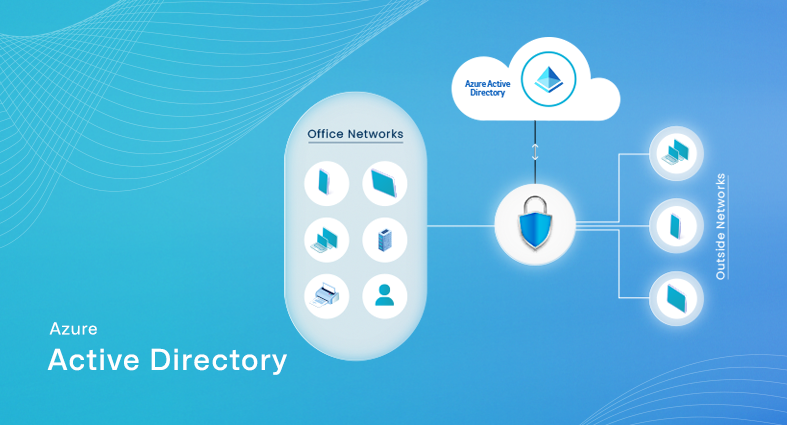When it comes to creating a website, choosing the right web hosting provider and plan is crucial for the success of your online business. There are three main types of web hosting: shared hosting, virtual private server (VPS) hosting, and dedicated hosting. Each hosting type has its advantages and disadvantages, and it’s important to understand the differences between them before choosing the best hosting option for your website. In this article, we’ll dive into the pros and cons of each hosting type and help you find the perfect fit for your website.
Contents
Hosting Comparison
Before diving into the different types of hosting, let’s talk about what hosting is and why it’s essential. Hosting refers to the space on a server where you store your website files and data, allowing users to access your website from anywhere in the world. A hosting provider is a company that provides the infrastructure and services needed to host your website.
When it comes to hosting, there are three primary options to choose from: shared hosting, VPS hosting, and dedicated hosting. The main differences between these hosting types are the level of resources you receive and the amount of control you have over your hosting environment.
Web Hosting Types
There are different types of web hosting available, and each type comes with its own set of features, benefits, and drawbacks. Understanding the differences between the types of web hosting is essential when choosing the right option for your website, as it affects website performance, security, and resource allocation. It is important to choose a web hosting type that fits your website’s requirements and budget.
Shared hosting is a type of web hosting where multiple websites are hosted on the same server, sharing the server’s resources such as CPU, RAM, and storage space. Shared hosting is the most common and affordable type of web hosting. Thus making it an excellent option for personal websites, small businesses, and startups that have low traffic volumes and do not require many resources. Shared hosting providers often provide easy-to-use website builders and control panels, making it easy to set up and manage a website.
- Affordability: Shared hosting is the most affordable type of web hosting, as the cost of server maintenance and resources is split between many users, making it an excellent option for those on a tight budget.
- Ease of Use: Shared hosting providers often provide easy-to-use website builders and control panels, making it easy to set up and manage a website without requiring technical knowledge.
- Low Maintenance: With shared hosting, the hosting provider is responsible for server maintenance, security, and updates, allowing users to focus on their website’s content and design.
- Scalability: Shared hosting providers often offer flexible plans that allow users to upgrade their hosting plan as their website’s traffic and resource requirements grow.
- Community Support: Shared hosting often comes with a community of users, providing support and resources to help users solve problems and learn more about website management.
- Limited Resources: Sharing server resources can affect website performance, and if one website on the server experiences a spike in traffic, it can affect the performance of other sites hosted on the same server.
- Limited Control: Users have limited control over their hosting environment, as they share the server with other users, and cannot install custom software or configure their server to their exact specifications.
- Security: Since multiple websites share the same server, there is a higher risk of security breaches, and one website on the server can potentially affect other sites on the same server.
- Unpredictable Traffic: With shared hosting, users have no control over the traffic on other websites hosted on the same server, which can lead to unpredictable traffic patterns and affect website performance.
- Resource Allocation: Shared hosting providers may limit resource allocation, such as storage space and bandwidth, to prevent one website from using all the server’s resources, which can affect website performance if it exceeds its resource limits.
VPS Hosting
VPS hosting, short for Virtual Private Server hosting, is a type of web hosting where a single physical server is partitioned into multiple virtual servers, each with its own resources and operating system. Each VPS is isolated from other virtual servers, providing users with the privacy, security, and control of a dedicated server, without the high costs. VPS hosting is ideal for businesses with higher traffic volumes and customized hosting requirements, as it offers more resources and control over the hosting environment.
Pros of VPS Hosting
- Customization: VPS hosting provides users with more control over their hosting environment, allowing them to install custom software and configure their server to their exact specifications.
- Privacy and Security: Each VPS is isolated from other virtual servers, providing users with privacy, security, and protection against potential security breaches from other users on the server.
- Dedicated Resources: Each VPS comes with dedicated resources such as CPU, RAM, and storage space, ensuring that resources are not shared among multiple users, which can impact website performance.
- Reliability: VPS hosting providers often offer robust backup and disaster recovery options, ensuring that data is safe and protected in case of a server failure or data loss.
Cons of VPS Hosting
- Technical Expertise: VPS hosting requires some technical knowledge and expertise to set up and manage, which can be challenging for those without technical backgrounds.
- Resource Limits: Although VPS hosting offers dedicated resources, there are still limits to the number of resources allocated to each VPS, and exceeding these limits can result in website performance issues.
- Limited Support: VPS hosting providers may offer limited support compared to shared hosting providers, as users have more control over their hosting environment and are responsible for their server’s management.
- Server Maintenance: VPS hosting requires more maintenance and management than shared hosting, as users are responsible for server maintenance, security, and updates.
Dedicated Hosting
Dedicated hosting is a type of web hosting where a user rents an entire server for their website, giving them complete control over their hosting environment. This means that they can customize their server to their exact specifications, including hardware, software, and security settings. Dedicated hosting is the most powerful and expensive type of hosting, providing high levels of performance, security, and reliability. It is ideal for businesses with high traffic volumes and customized hosting requirements, such as e-commerce websites, large corporations, and government organizations.
Pros of Dedicated Hosting
- Complete Control: With dedicated hosting, users have complete control over their hosting environment, allowing them to customize their server to their exact specifications, including hardware, software, and security settings.
- High Levels of Performance: Dedicated hosting provides high levels of performance, as users have exclusive access to their server’s resources, including CPU, RAM, and storage. This means that websites hosted on dedicated servers can handle high traffic volumes without affecting website performance.
- Security: Dedicated hosting offers a high level of security, as users have complete control over their server’s security settings and can implement their own security measures, such as firewalls, anti-virus software, and intrusion detection systems.
- Reliability: Dedicated hosting is highly reliable, as users have exclusive access to their server’s resources, and there is no risk of resource competition with other websites hosted on the same server.
- Customizable Hosting Environment: Dedicated hosting allows users to create a customized hosting environment, including customized software installations, database configurations, and server-level settings.
Cons of Dedicated Hosting
- High Cost: Dedicated hosting is the most expensive type of hosting, making it less accessible to small businesses and personal websites with limited budgets.
- Technical Knowledge Required: Dedicated hosting requires technical knowledge to manage and maintain the server, including server administration, security, and software updates.
- Time-consuming Setup: Setting up a dedicated server can be time-consuming and requires technical expertise, including server configuration, software installations, and security settings.
- Maintenance and Support: Dedicated hosting requires maintenance and support, including hardware and software updates, security patches, and server backups.
- Limited Scalability: Dedicated hosting provides limited scalability, as users are limited to the resources of their server, and upgrading to a higher level of service can be costly and time-consuming.
Which Hosting Option is Right for You?
Choosing the right hosting option can be a challenging task, and there are several factors to consider before making a decision. The first step is determining your website’s requirements, such as the expected traffic volume, website size, and software requirements. If you are just starting and have a small website with low traffic, shared hosting may be the best option for you. On the other hand, if you have a website that requires more resources and customization, VPS hosting or dedicated hosting may be the better option.
Another important factor to consider is your budget. You should also consider the level of technical expertise required to manage the hosting environment. Shared hosting is the easiest to manage, while VPS hosting and dedicated hosting require more technical knowledge. Ultimately, the best hosting option for you depends on your specific needs and requirements, and you should choose a hosting provider that offers the features and support you need to run your website successfully.
Final Point
Choosing the right type of web hosting is essential for the success of your website. Whether you choose shared hosting, VPS hosting, or dedicated hosting, remember to choose a reputable hosting provider that offers excellent support and security. With the right hosting plan, you can ensure that your website is fast, reliable, and secure, helping you achieve your online goals. If you’re looking for a reliable and secure web hosting provider, look no further than Pentagon. Visit our website today to learn more about our web hosting services in Abu Dhabi and get started on building a successful online presence.
services
Feel free to send us a message.
Please, share your thoughts, and let's chat over a cup of tea.





















